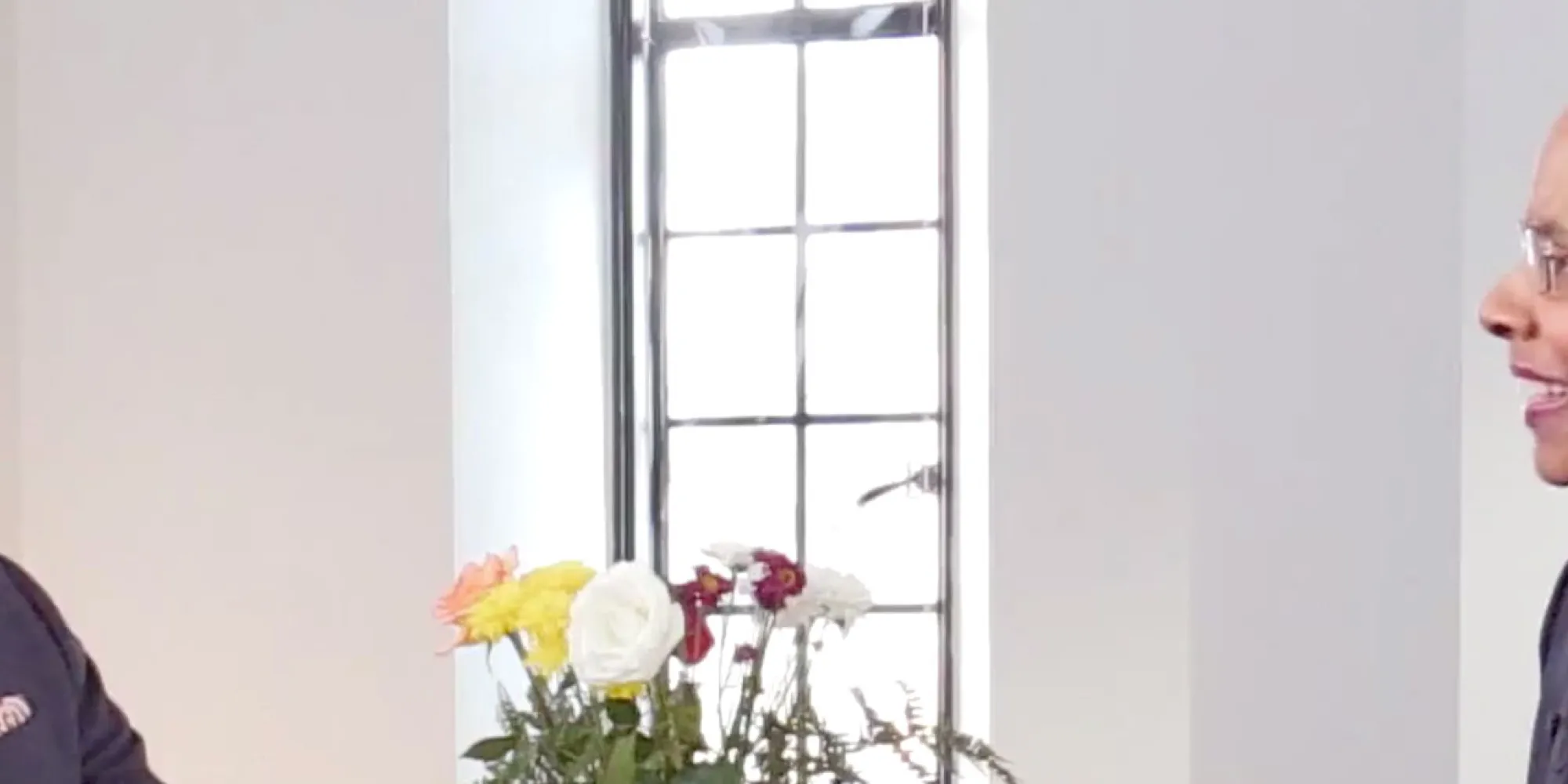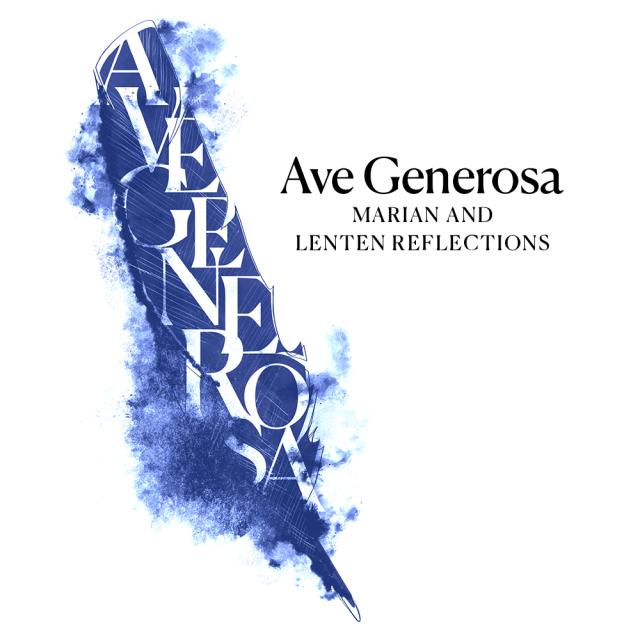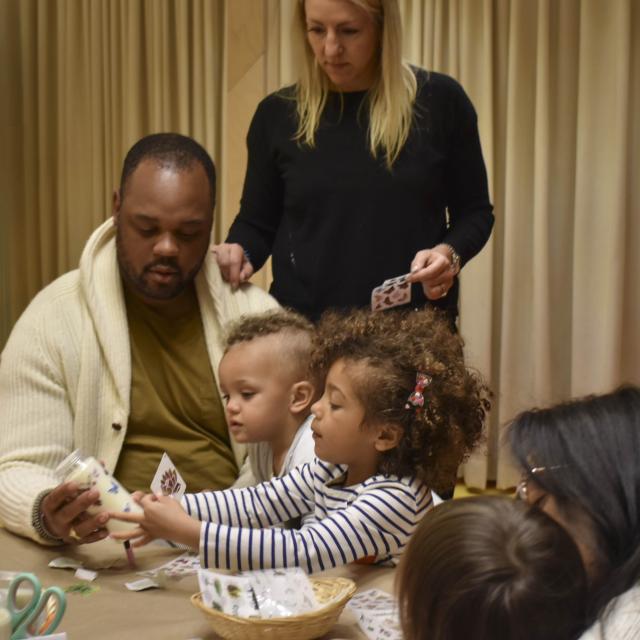Courageous and Just

A Video Series with the Very Rev. Dr. Kelly Brown Douglas
The Very Rev. Dr. Kelly Brown Douglas, Dean of EDS at Union and Trinity’s Theologian in Residence, interviews bold voices of our time to explore the question, “What does a just society look like?” and to compel us to act on our moral imagination. Pursuing faith-based social justice work in these challenging times takes courage, and these leaders are shining a light on critical issues facing today’s church, our individual identities, and our collective experiences, so we can shape a more just and equitable world — to become what the Rev. Dr. Martin Luther King, Jr. called the "Beloved Community."
Discussion Questions for the Series
- What concepts and language are familiar to you and relate to the world as you understand it? What experiences do they bring to mind?
- What concepts and language feel unfamiliar to you? Why do you think they are unfamiliar? How might you learn more about them? Why is it important to learn about this language and these concepts?
- In each of her interviews, Dr. Douglas asks her guests, “What does a just future look like?” Each guest applies a personal lens to this question. For example, Austin Channing Brown reflects on what a just future would look like for her son, and the other three consider what people in general need to live and flourish. After hearing their responses, what does a just future look like to you?
Videos
Courageous and Just Episode 1: Kelly Brown Douglas with Austin Channing Brown
Trinity’s Theologian in Residence, the Very Rev. Dr. Kelly Brown Douglas, Dean of Episcopal Divinity School at Union Seminary, launches a new video series with an interview with Austin Channing Brown, author of “I’m Still Here: Black Dignity in a World Made for Whiteness.” Brown shares insights from her book, and her life, about what it means to embrace blackness, reimagine self-identity outside of the framework of white supremacy, and how she is preparing her one-year old son to both “love and resist.”
For Discussion: Episode 1
These questions are designed to prompt conversation and reflection. Choose the ones that resonate with you and your group.
- Throughout this interview, whiteness is discussed as a belief or assumption that white behaviors, culture and attitudes are universal. In Western culture, it’s the standard against which cultures, groups, and individuals are measured in organizations and systems, such as churches and schools. How do you observe whiteness expressing itself in your community?
- How does Brown’s experience relate or differ from your own?
- Brown and Dr. Douglas talk about how those who are white must be self-aware about the ways they participate in whiteness. What are some of ways to develop this self-awareness?
- What is the role of faith communities in telling the truth about whiteness and dismantling white supremacy?
- Dr. Douglas said, “Just because someone looks like a white American doesn’t mean they have to act like a white American.” How do you experience that statement?
- What does it mean to “love and resist at the same time”?
Courageous and Just Episode 2: Kelly Brown Douglas with Broderick Greer
The Rev. Canon Broderick Greer, based at St. John's Cathedral in Denver and a popular podcaster and social media influencer, tackles the tough faith question of what it means for the church to stand in solidarity with victims of police violence in the streets of Ferguson, MO, with those mourning the victims of a mass shooting targeting Jews inside the Tree of Life Synagogue, as well as with all “crucified classes.”
For Discussion: Episode 2
These questions are designed to prompt conversation and reflection. Choose the ones that resonate with you and your group.
- Dr. Douglas and Greer talk about the “crucified classes” of people, and Greer gives examples such as people who are unheard by society, people who are constantly being stopped by the police, or people on the border seeking asylum. What do you think he means by “crucified class,” and who are others that might be described as part of the “crucified class?”
- Greer describes being in Ferguson, Missouri, after the death of Michael Brown and seeing some clergy sitting in police cars with the police, while other clergy were on the streets with the protesters. Where do you think the church should be in crisis and chaos? Why?
- Greer reflects on the importance of being a witness, to hear people’s suffering and to listen to what they are going through. How has bearing witness impacted your ministry? What issues are impacting your community now that might be calling you to offer witness?
Courageous and Just Episode 3: Kelly Brown Douglas with Mihee Kim-Kort
The Rev. Mihee Kim-Kort is a Presbyterian minister and author whose recent book Outside the Lines: How Embracing Queerness Will Transform Your Faith, delves into the concept of queerness as a lens through which to evaluate societal issues. While the word and concept of queerness have not been traditionally used in the church, Kim-Kort believes Christians should be gesturing toward queer horizons, beyond the lines and structures society has drawn, not only to work toward a more just and equitable world, but also to become our most complete, restored selves.
For Discussion: Episode 3
These questions are designed to prompt conversation and reflection. Choose the ones that resonate with you and your group.
- Kim-Kort discusses what it means to be queer. Building upon the historical understanding of queerness as tied to sexual and gender identity, she says that the term means to be anti-assimilationist and non-normative. Using this framework as a lens, where do you see queerness show up in your life?
- Dr. Douglas asks Kim-Kort, what is inside the lines? She responds that we are often given non-verbal instructions about how we are supposed to act in certain roles (as an adult, a mother, or an Asian American, for example). She goes on to say that this feels oppressive and disconnects us from who we really are. When we define ourselves authentically, and not as society wants us to identify, we are more in line with who God wants us to be. When have you felt restricted by the expectations of your role in society? What did you do?
- Kim-Kort responds to Dr. Douglas’s question about what a queer Jesus looks like by saying his interaction with people who are marginalized, oppressed, and not in the center of society should shape what we do as people of faith. Who in your community is living outside the lines of society’s expectations? What can they teach communities of faith?
Courageous and Just Episode 4: Kelly Brown Douglas with Jeremy V. Cruz
Dr. Jeremy V. Cruz, assistant professor of theology and religious studies at St. John’s University, shares about his life's work in protecting and advocating for workers’ rights, particularly farmworkers, and how that intersects with the role of the church in creating a just world where people are in control of their own labor, and are free from systems of debt, walls, and cages.
For Discussion: Episode 4
These questions are designed to prompt conversation and reflection. Choose the ones that resonate with you and your group.
- Dr. Cruz describes himself as a practitioner of moral advocacy rather than an activist. We are all active in the world, but we need to ask if our actions are serving justice or making us complicit in injustice. What are some of the ways your actions are serving justice? In what ways might you be complicit in systems of injustice?
- Faith communities have emphasized the dignity of work for more than a century, yet two groups of workers are not afforded full legal protections in the United States. When labor laws were put in place during the New Deal era, farmworkers and domestic workers – two labor forces with ties to slavery – were made exempt from these laws. Today, many of the 1930 labor law exemptions are still in place.
- Why do you think these two work forces remain exempt from the federal laws?
- Why are certain kinds of work stigmatized or venerated? How does your work uphold or promote your dignity?
- Dr. Douglas and Dr. Cruz talk about what it means to “love your enemy.” Dr. Douglas asserts that striving to love our enemies means not allowing them to stay in a place where they are creating injustice. Do you have any examples from your own life of calling someone out of injustice or calling a system out of injustice? In what ways is calling someone out of injustice an act of love? How do you see the connection between love and justice?
About the Speakers
The Very Rev. Dr. Kelly Brown Douglas, the inaugural Dean of Episcopal Divinity School at Union Theological Seminary, leads EDS at Union in the education and preparation of students in fulfilling requirements for ordination in the Episcopal Church while receiving their degree from Union. She is also Trinity’s theologian in residence and Canon Theologian at the Washington National Cathedral. Prior to coming to Union, Dean Douglas was the Susan D. Morgan Professor of Religion at Goucher College in Baltimore; Associate Professor of Theology at Howard University School of Divinity; Assistant Professor of Religion at Edward Waters College; and Associate Priest at Holy Comforter Episcopal Church in Washington, D.C. A leading voice in the development of womanist theology, Dean Douglas is a widely published book author and has been published in numerous national and international journals. Dean Douglas is a Phi Beta Kappa graduate of Denison where she earned a Bachelor of Science summa cum laude in Psychology. She went on to earn a Master of Divinity and a Doctoral Degree in Systematic Theology from Union Theological Seminary. A native of Dayton, Ohio, Dean Douglas was ordained at St. Margaret’s Episcopal Church in 1985 — the first black woman to be ordained an Episcopal priest in the Southern Ohio Diocese, and amongst the first ten to be ordained nationwide.
Austin Channing Brown is a seasoned racial justice leader and an important voice in today’s conversation about race in America. Her recent book, I’m Still Here: Black Dignity in a World Made for Whiteness, offers a powerful account of how and why our actions so often fall short of our words. Austin holds a master’s degree in social justice from Marygrove College in Detroit. She directed a mission site on the west side of Chicago, creating interactive opportunities for youth to engage issues of poverty, injustice. She also served on staff with Willow Creek Community Church, developing strategies and programming around multiculturalism. Currently, Austin is resident director and multicultural liaison for Calvin College, in Grand Rapids, MI, and frequently travels to share her message at colleges, universities, conferences, and churches.
A 2015 graduate of Virginia Theological Seminary, the Rev. Canon Broderick Greer is Canon Precentor at Saint John's Cathedral in Denver, Colorado. At Saint John's, Broderick coordinates ministry to people in their 20s and 30s, oversees the Cathedral's daily and weekly liturgies, and assists the Dean with stewardship and development. He occasionally speaks on matters related to history, black and queer theology, and racial justice. His work has appeared in The Guardian, Teen Vogue, On Being, and The Washington Post.
Mihee Kim-Kort is a Presbyterian minister, agitator, speaker, writer, and slinger of hopeful stories about faith and church. Her writing and commentary can be found at TIME, BBC World Service, USA Today, Huffington Post, Christian Century, On Being, Sojourners, and Faith and Leadership. She is a PhD student in Religious Studies at Indiana University where she and her Presbyterian minister-spouse live with their three kids in Hoosier country.
Jeremy Cruz joined the St. John’s University faculty in 2014 and teaches courses in ethics and theology, as well as the capstone course for the undergraduate minor in Social Justice: Theory and Practice in the Vincentian Tradition. As a practitioner of moral advocacy, Jeremy volunteers with religious communities as they advocate for the rights and well-being of U.S. farmworkers. His current research focuses on justice for farmworkers and moral theories of social equality. Jeremy has also gained insight into the role of religion in society by working as a faith-based community organizer, and as a lay ecclesial minister in his native California. He earned his B.A. in history from the University of California, Riverside. He studied at Loyola Marymount University and the Weston Jesuit School of Theology, before earning a Master of Divinity and a Ph.D. in Theological Ethics from Boston College.






